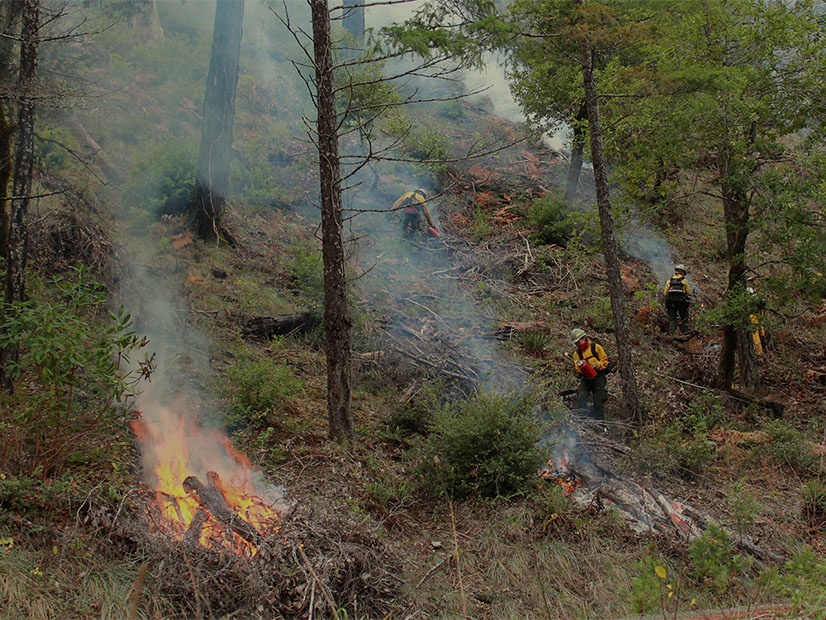
Lawmakers are poised to place on the November ballot a $10 billion climate resilience bond measure that would provide $850 million for clean energy projects, including offshore wind.
California lawmakers are poised to place on the November ballot a $10 billion climate resilience bond measure that would provide $850 million for clean energy projects, including offshore wind.
Senate Bill 867, which would send the bond measure to voters, must be passed by July 3 to meet the deadline for the November ballot. The legislature’s monthlong summer recess starts July 4.
Lawmakers from the Senate and Assembly announced June 30 that they had reached agreement on the language of the bill, known as the Safe Drinking Water, Wildfire Prevention, Drought Preparedness and Clean Air Bond Act of 2024.
On July 1, the bill was ordered to a third reading in the Assembly. It needs a two-thirds vote of each house and a majority vote at the ballot.
An earlier version of the bill proposed a $15.5 billion bond measure. Even at the lower $10 billion amount, lawmakers are calling it “the single largest investment in public funding for climate resilience in California’s history.”
The bond measure would provide:
-
- $3.8 billion for safe drinking water, drought, flood and water resilience.
- $1.5 billion for wildfire prevention and forest resilience.
- $1.2 billion for sea level rise and coastal resilience.
- $1.2 billion for biodiversity and nature-based climate solutions.
- $850 million for clean energy.
- $700 million for park creation and outdoor access.
- $450 million for extreme heat mitigation.
- $300 million for climate-smart farms, ranches and working lands.
At least 40% of the funds would go to projects that benefit vulnerable populations or disadvantaged communities.
Clean Energy Projects
Of the $850 million earmarked for clean energy projects, $475 million would go to the California Energy Commission to support the development of offshore wind. That would include building or upgrading port facilities to accommodate the manufacturing, assembly and staging of offshore wind equipment.
An additional $325 million would go toward clean energy transmission projects. And $50 million would be available for long-duration energy storage, zero-emission distributed energy backup assets, virtual power plants or demand-side grid support.
The $1.5 billion for wildfire prevention and forest resilience would include $35 million to reduce wildfire risk related to electricity transmission.
The proposed bond measure comes as the state faces an increasing sense of urgency over the climate crisis.
“We are already seeing the devastating effects of climate change — more extreme heat waves, catastrophic fires and floods, coastal erosion, and severe droughts,” Sen. Ben Allen (D), a lead author of SB 867, said in a statement June 30. “Unless we take action now, the cost to address these impacts will become increasingly overwhelming.”
The California Natural Resources Agency’s Fourth Climate Change Assessment predicts that climate change will cost the state $113 billion a year by 2050 unless action is taken.
Every dollar spent on resiliency saves $6 in disaster relief, according to Federal Emergency Management Agency estimates cited in the bill.
Bond Fatigue?
The Assembly Natural Resources Committee held an informational hearing on the bill July 2.
Assemblyman Josh Hoover (R) said that while there are “great things” in the bill, “I do remain concerned that there’s a bit of bond fatigue among the electorate.”
Other lawmakers noted that budget cuts made for the new fiscal year in response to a $46.8 billion shortfall had hit climate programs.
“We’ve got some pretty gloom-and-doom budget circumstances before us. There might not be other resources in front of us to be able to make these investments,” said Assemblyman Eduardo Garcia (D), one of the bill’s authors.
Garcia said the bill would also provide an economic stimulus to parts of the state with high unemployment rates or where impacts of climate are felt disproportionately.



